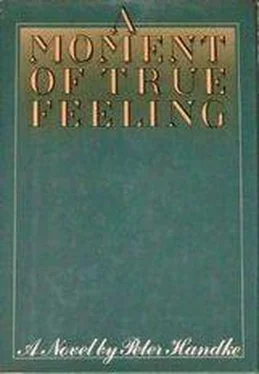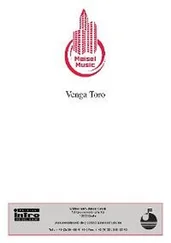That morning a small truck finally arrived with the Austrian silent films, which Keuschnig had loaned the Ciné-mathèque some months ago for a series of showings at the Palais Chaillot, and the return of which he had requested a number of times. In the court of the embassy, ignoring the driver’s impatience, he checked every single reel against his list. No one seemed to notice that anything was wrong. Besides, there was hardly anyone in the building. Because of his newspaper reading, he was always among the first to arrive. In his office, he cut open the bundle the night watchman had deposited outside his door, and removed the tag addressed in red: “Ambassade d‘Autriche. ” Recalling that the United Nations troops on Cyprus included an Austrian contingent, he first looked through the papers with them in mind. None dead yet? Then, felt pen in hand, he began to read seriously. Every half hour he stood up and tore the reports of the French news agency off the Telex, which went on ticking inexorably. He had also turned on the short-wave radio. It was still early morning when news of the provisional cease-fire on Cyprus came through; after that he was undisturbed, alone with himself. As usual the newsprint made his fingers blacker and blacker. He didn’t once shift his position while reading, didn’t once run his hand over his face, not even when it itched; he merely read and underscored so-called key phrases. Without looking up and without a moment’s hesitation. Where were the SELLING POINTS the guidelines demanded? At the farm show in Compiègne, a reforestation machine made in Austria was on display. At an exhibition of optical instruments in Lyons, a research microscope from Austria had been demonstrated. Le Monde had good things to say of environmental measures taken in the Tyrol. Once again L’Aurore spoke of anti-Semitism in Austria, though in accordance with the guidelines, he had already sent them several letters of protest and rectification. On the other hand, a consumer magazine gave an Austrian ski binding an excellent rating. But Le Parisien liberé referred to Bruckner as a German rather than an Austrian composer. — At about nine Keuschnig washed his hands and reported to the ambassador, who that day had arrived somewhat earlier than usual. The ambassador asked him what he thought of the fighting on Cyprus, but then, almost protectively, answered for him, so that Keuschnig merely had to drop an occasional: “Yes, that’s quite possible,” or “No, that can’t be ruled out.” Even the ambassador, who in his position, as he not infrequently remarked, could be expected to have an eye for people and their weaknesses, seemed to notice nothing. (Would he otherwise have listed course after course of the dinner he had eaten the night before at the home of some French count?) Keuschnig was relieved but at the same time, oddly enough, disappointed.
He drank his usual tea at a café on the Boulevard Latour-Maubourg. As he looked out at the street, it occurred to him that he couldn’t have said anything to anyone. He often heard people saying: “If I had something to say …”—and now he thought: If I had something to say, I’d cross it all out. At the top of a garbage can on the sidewalk he saw a heap of coffee grounds and filter paper; as he looked at it, it reminded him of a lawn freshly fertilized with human manure: there had been toilet paper all over the young grass. He went to the men’s room and pissed gloomily down into the hole. The smell of urine revived him. He thought of tomorrow and the day after and tugged at his fingers in disgust; he opened his mouth wide, at the same time looking around to make sure no one was watching him.
On the way back to the embassy, Keuschnig had a sudden impulse to bare his teeth. Without prospect for the future, he had risen from the protective café chair. Compressing his lips, he nodded to a colleague who was coming toward him. At the sight of this colleague he thought of sleeve protectors, although he hadn’t seen anyone in sleeve protectors for ages. Why couldn’t the other man disregard him? Why did he have to COME TOWARD HIM? Brownish-yellow scraps of scum on milk that had been boiled days ago. True, he was still more or less alive, he was running around loose, but soon it would be all up with him. He wanted to beat everyone to a pulp! Everything, even the sense of well-being his first sip of tea had given him, now seemed RELATIVE. My life line has broken off, Keuschnig thought, as though still trying to cheer himself up a little. A baby carriage with a plastic cover was standing in a doorway, an image of panic terror; as he hurried past, it completed the dream he hadn’t finished dreaming that night. He forced himself to go back and examine the baby carriage in every detail.
He saw two blacks walking ahead of him, both with their hands deep in their pockets, so that the slits of their jackets gaped wide and their behinds stuck out — both had the same gaping slits and the same behinds! A woman was wearing two different shoes, one with a platform much higher than the other. Another woman was carrying a cocker spaniel in her arms and crying. He felt like a prisoner in Disneyland.
On the sidewalk he read, written in chalk: “Oh la belle vie, ” and underneath: “I am like you,” with a phone number. Whoever it was had BENT DOWN to write about the GOOD LIFE, he thought, and made a note of the phone number.
In the office he read the newspapers that had just arrived. He was struck by the frequency of the words “more and more” in the headlines of a single page: “More and more babies are overfed,” “More and more child suicides.” In reading Time he was struck, on many pages, by the sentence: “I dig my life.” “I dig my life,” said a basketball star. “We are a happy family,” said a war veteran. “I am very glad,” said a country singer. “Now I dig my life,” said a man who was using a new fixative for his dentures. Keuschnig wanted to howl long enough for everyone in the building to hear him. Then he looked up at the ceiling, cautiously, as though even that might give him away.
He had the sidewalk telephone number in front of him, but first he dialed several other numbers. He wanted to be alone as little as possible in the days to come, and cast about for friends and acquaintances to take up his time. Before each call, for fear some slip of the tongue would give him away or that he would suddenly be unable to go on, he wrote down word for word what he intended to say. In the end he had made an appointment for every evening and his date book was full to the end of the month. I’ll lose myself in my work, he thought. Then he called the sidewalk number. A woman answered. She said she couldn’t remember writing anything on the pavement, she must have been drunk. Keuschnig, who had only wanted to needle her, said: “You were not drunk. I shall be at the Café de la Paix, the one across from the Opera, at nine tomorrow evening. Will you come?” “Perhaps,” said the woman, and then: “Yes, I’ll come. But let’s not arrange any signs. I’d like us to just recognize each other. I’ll be there.”
At twelve o’clock Keuschnig took the rue Saint-Dominique to the stop of the 68 bus, as usual on his way to see a girl friend in Montmartre. For a while he drifted into side streets, following a girl with CHICAGO CITY written on the seat of her jeans. He wanted to see her face. Then he noticed he had forgotten her. In the bus he saw he was all alone, and for a moment that made him very happy. A shudder ran through him, it gave him a sense of power, directed against no one. At the next stop he looked up, and already there were several heads in front of him.
When Keuschnig looked out of the bus window, his field of vision swarmed with transparent pockmarks, and when he closed his eyes and opened them again, there were still more of them. After getting out he decided to stand still for a moment and look patiently at something, the sky for instance. And then he stood there, feeling nothing. “C’est normal,” said a passer-by. Yes, everything was wretchedly normal, elendig normal. He thought of an Austrian country shrine called Maria Elend.
Читать дальше












